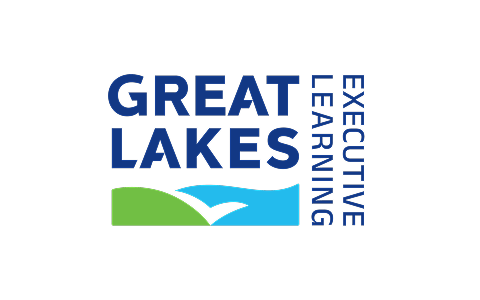Learn Human Resource Management for Beginners
Human Resource Management
This HR management course is taught hands-on by experts. Learn all about hrm, job analysis, recruitment, manpower planning & lot more. Best for beginners.

Ratings
Level
Learning hours

Learners
Skills you will learn
About this course
Dive into the field of Human Resource Management (HRM) with our free HR certificate course, offering a deep dive into essential HR practices through one of the best free online HR courses with certificates. Covering a wide range of topics from the Introduction to HRM, Functions of HRM, Evolution of HRM, to Manpower Planning, Job Analysis, Recruitment and Selection, and more, this HR course is perfect for both seasoned professionals and newcomers. Enhance your skills in Compensation and Benefits, Training and Development, Performance Management, and Employee Engagement with our HR courses online. This opportunity not only broadens your HR knowledge but also awards you a certificate upon completion, marking a significant step forward in your HR journey.
If you're ready to take your HR career to the next level, don't miss the chance to pursue our prestigious Executive PG Program in Management. Elevate your skills and career prospects with our in-depth program.
Course Outline
The module will introduce you to Human Resources with examples. It will also explain why human resources are the best valuable asset of the organization. After understanding the basic terms, the instructor will explain what HRM is.
Discover various functions where Human Resources are involved in. One by one, the functions like Job Analysis, Onboarding, Training, Compensation, and more will be discussed.
This module will take you through the evolution of HRM over a period of time. You will understand how things have improved, and HR processes have become better with time.
Moving forward, this module will discuss Manpower Planning, also known as Human Resource Planning. You will understand here what Manpower Planning is and why it is important for raising the productivity of the business. You will also learn the steps of Manpower Planning to make the right decisions regarding Human Resources.
Become familiar with the systematic process of collecting information about a job, which is known as Job Analysis. In this module, you will understand how Job Analysis is different from Job Description and Job Evaluation. This is an important step to support the other functions of HRM.
 UPGRADE
UPGRADE
Recommended university programs
Frequently Asked Questions
Will I receive a certificate upon completing this free course?
Is this course free?
What is Human Resource Management (HRM) and Why is it Important?
HRM involves managing people in organizations, focusing on policies and systems. It's crucial for hiring, training, performance assessment, and ensuring legal compliance, contributing to the overall success of an organization.
What are the Key Functions of Human Resource Management?
Key functions include recruitment and staffing, training and development, employee relations, compensation and benefits management, and ensuring compliance with employment laws.
How Does HRM Contribute to an Organization’s Success?
Effective HRM contributes by maximizing employee performance, improving job satisfaction, fostering a positive work environment, and aligning employee goals with the organization's.
Human Resource Management for Beginners
Human Resource Management is concerned with the principles, methods, and technology employed to increase an organization's productivity.
HR professionals succeed in this by executing strategies and policies to boost employee and workplace efficiency, which are the lifeblood and most valuable resource of most businesses.
HRM stands for human resource management, and it focuses on personnel as company assets. Human capital is a term used to describe personnel in this context. Like any other corporate assets, employees have to be analyzed and assigned tasks that they can work on efficiently to reduce risks and errors, and maximize return on investment. This human resource management course is designed to give you an overview of the role human resources play in organizations. The course also covers current issues in human resource management, such as diversity, ethics, and global human resources.
There are numerous different focus areas in Human Resources:
-
Recruiting and staffing
-
Compensation and benefits
-
Training and learning
-
Labour and employee relations
-
Organization development
Liable on your role and the size of the corporation for which you work, your tasks might focus just on one area or multiple ones.
Importance of Human Resource Management
The role of HRM practices is to manage the people within a workroom to accomplish the organization's task and emphasize the culture. HR managers may aid in the recruitment of new professionals with the competencies required to further the company's goals, including the training and development of existing employees to achieve objectives, if implemented right.
HRM is a critical aspect of sustaining or increasing the health of a business because a company is only as good as its employees. HR managers can also keep an eye on the job market to ensure that their company remains competitive. This may entail ensuring that salary and benefits are equitable, that events are organized to keep employees from becoming burnt out, and those job duties are changed to market conditions.
How does Human Resource Management work?
HR management is carried out by dedicated HR experts who are in charge of the day-to-day execution of HR-related tasks. Human resources, in most cases, will be a separate department within a company.
HR departments vary in size, structure, and the nature of their individual positions across different corporations. It's not uncommon for smaller firms to have a handful of HR generalists who each execute a wide range of HR functions. Individual personnel dedicated to functions such as recruiting, immigration and visa handling, talent management, benefits, remuneration, and more may exist in larger firms. Despite the fact that various HR professions are distinct and specialized, job tasks may overlap.
Amazon is an example of a major corporation with a variety of HR positions. Amazon has 15 different HR job titles listed on its career website:
-
HR assistant
-
HR business partner
-
HR manager
-
Recruiter
-
Recruiting coordinator
-
Source
-
Recruiting manager
-
Immigration specialist
-
LoA and accommodation specialist
-
Compensation specialist/manager
-
Benefits specialist/manager
-
Talent management specialist/manager
-
Learning and development specialist/manager
-
HR technology/process project program manager
-
HR analytics specialist/manager
Objectives of Human Resource Management
-
Societal Objectives: Measures taken in response to the company's and its employees' ethical and social demands or challenges. Equal opportunity and equal pay for equal labor are examples of legal issues.
-
Organizational Objectives: Actions made to help assure the organization's efficiency. This involves things like staff training, recruiting the correct number of people for the job, and keeping high employee retention rates.
-
Functional Objectives: HR guidelines are utilized to keep the organization's HR department running smoothly. This involves ensuring that all of HR's resources are utilized to their maximum extent.
-
Personal Objectives: Employees' personal aspirations are supported by resources. Offering opportunities for education or professional advancement, as well as preserving employee happiness, are all part of this
Within the unit of each organization, the objectives of HRM are to:
1. Assist the organization in achieving its objectives by recruiting and retaining productive employees.
2. Make effective use of each employee's skills and abilities.
3. Ensure that personnel have or will obtain the necessary training.
4. Create and sustain a pleasant employee experience that includes high satisfaction and high quality of life so that people can give their all to their jobs.
5. Clearly communicate to employees important company policies, processes, rules, and laws.
6. Maintaining ethical, legal, and socially responsible workplace policies and behaviors.
7. Manage external circumstances that may have an impact on personnel within the organization effectively.
Key Responsibilities and Tasks in Human Resources
The subsequent are some of the most common tasks for HR departments:
-
Address any issues raised by staff.
-
Recruit outstanding personnel and supervise the departure of present employees.
-
Create Programmes that help people advance their careers.
-
Evaluate each employee's performance as well as the company's overall performance.
-
Set up incentive Programmes.
-
Disputes and other concerns should be resolved (e.g., sexual harassment, bullying).
-
Provide direction and assistance to employees in identifying their strengths and limitations.
-
Develop and evaluate initiatives to improve employee retention.
-
Create an environment that is both positive and pleasurable to work in.
-
Create and sustain a positive business culture.
-
Create and implement programs that represent the organization's basic principles.
Qualities Required for HR
Problem-solving way of thinking
Many procedures are being taken over by computers, resulting in an increase in the need for talents that computers aren't good at (skills that can't be translated into codes), such as analyzing, assessing, and coming up with new ideas.
Fortunately, human intuition is still required. HR analytics is also becoming increasingly significant in Human Resources. When you utilize data and insights as to the foundation for your advice and judgments as an HR business partner, you can persuade people more quickly.
Collaborating with various people
Employees are expected to be able to work in any setting in today's globally connected society. This necessitates linguistic proficiency and adaptability, as well as the capacity to collaborate in a multicultural setting.
Social intelligence
In the future, more and more processes will be automated. However, computers still lag behind humans in a number of areas, particularly in the social realm and comprehending emotions.
This brings us to the third competency: social intelligence. HR professionals are aware of what different target groups desire and what inspires them to act. It's critical to get to the heart of these target groups' desires and requirements. Then you'll be able to react promptly to their messages.
Creativity
As an organization, originality is required to stay ahead of the competition. As an HR generalist, you should be able to come up with new working methods, innovations, and unique ideas that set the company apart from the competition.
Insight into new media
Comprehend how to use various communication channels. In the corporate world, user-generated content is becoming more prominent. Instead of static PowerPoint presentations, consider movies, blogs, podcasts, and infographics.
The ideal employee for the next decade is defined as "T" shaped: they have in-depth knowledge of at least one subject but can apply that knowledge across a variety of fields. As an HR Generalist, you must be knowledgeable in the areas of recruitment, remuneration, and benefits, as well as talent management, training developments, legislation and regulations, and data analysis.
Current Developments in HRM
HR is transforming, with a shift in emphasis from administrative duties to strategic input and a seat at the management table. This is aided by the changing needs of current organizations and technology, which allows for a more efficient transaction, budget, and other financial activity processing and approval.
HR professionals must be aware of corporate strategy. They must comprehend what drives corporate achievement as well as how to engage personnel and assist them in growing and adapting to an ever-changing work environment.
Here are some of the most important skills that HR professionals will learn from this free human resource management course: Communication, planning & organization, problem-solving, cooperation, and other skills are all important.



























.jpg)









.jpg)






